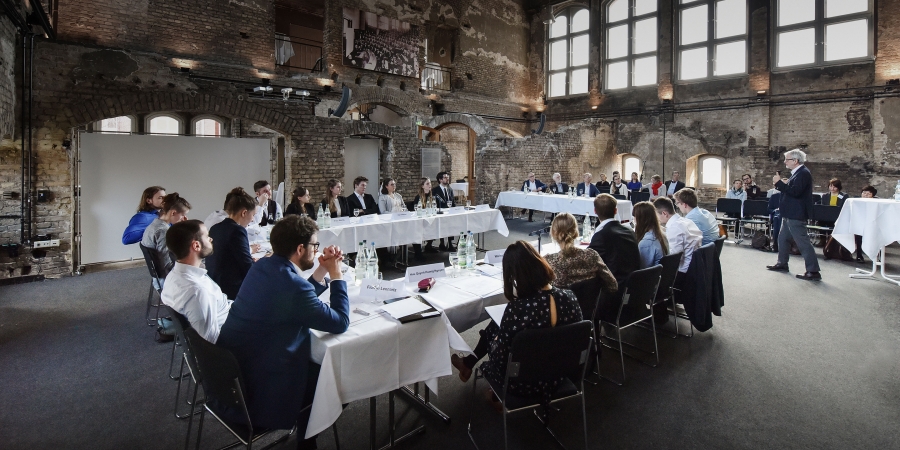Twenty (postgraduate) students simulated the stakeholder discussion at the Hörsaalruine of Charité Berlin on February 28, 2019 (Photo: Frank Vinken|dwb)
80% of the German population regard the „Energiewende“ as common task that everyone should make a contribution. However, in reality there often is a discrepancy to this desire: Only a minority is willing to participate actively in technical innovations going beyond energy saving behavior.1
The “7. Akademie für Energie & Akzeptanz” on the topic of „Global objectives, local impacts: How can the „Energiewende“ be developed socially sustainable?“ examined this conflict with twenty (postgraduate) students of various disciplines from 16 universities. After introductions to business ethics and energy economics, smart meters were the focus of discussions with practice experts from Verbraucherzentrale Bundesverband (VZBV), Bund für Umwelt- und Naturschutz (BUND), Elektrizitätswerke Schönau and Westnetz. While energy supply companies regard smart meters as a key technology for the digitalization of the energy system, consumer advisors and environmental associations emphasize the data security and cost aspects as well as additional consumptions on energy and production resp. disposal of the devices.
Highlight of the week from February 24 to March 1, 2019 was again the simulation of a stakeholder discussion where the participants took the roles of the experts. After a keynote by Prof. Ortwin Renn (IASS Potsdam/dynamis) and with moderation by Dr. Ursula Weidenfeld they explored joint possible solutions at the Hörsaalruine of Charité Berlin on February 28. It became apparent that compromises are crucial for the success of the „Gemeinschaftswerk Energiewende“ which in turn require confidence-building dialogues.

